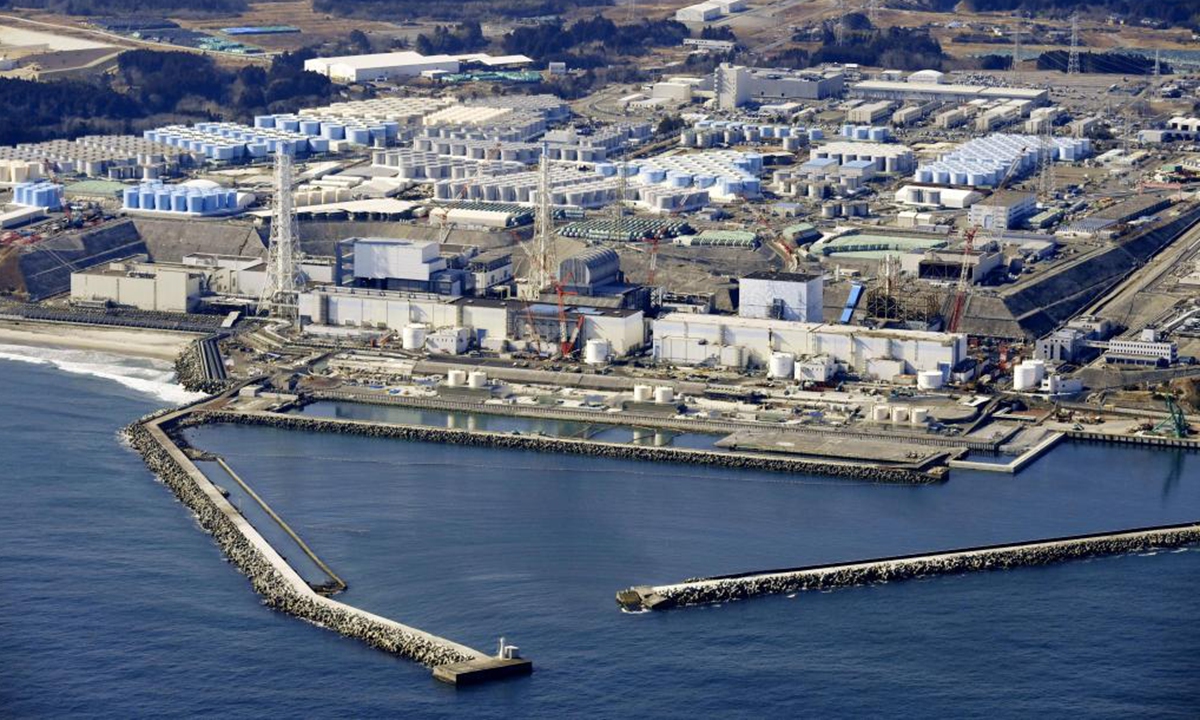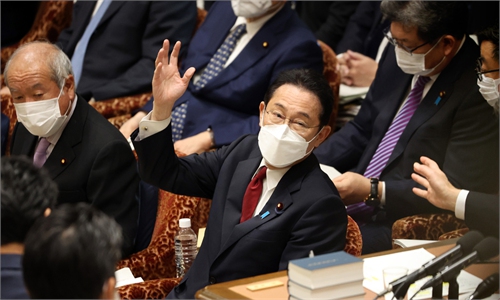Japan must not dump nuclear-contaminated water into sea without proper solution fully discussed: Chinese FM

Tanks at the crippled Fukushima nuclear power plant store nuclear-contaminated wastewater. Photo: Xinhua
The Chinese Foreign Ministry on Wednesday urged Japan to deal with the nuclear-contaminated wastewater from the destroyed Fukushima nuclear plant in an open, transparent, scientific and safe manner, saying it must not start discharging the water into the sea before a proper solution is fully discussed and agreed by neighboring countries and relevant international institutions.
Spokesperson Zhao Lijian reaffirmed China's serious concern and firm opposition to Japan's one-sided decision on Wednesday's press conference, when being asked to comment on the Japanese government which has neither changed its decision to release more than one million tons of contaminated water into the ocean, nor responded properly to the concerns of international community.
Zhao criticized Japan's extremely irresponsible decision to dump the wastewater amid the unfinished inspection and assessment work of International Atomic Energy Agency, which has sent technical working groups twice to the country for field investigations.
Zhao pointed out that given the potential harm of the wastewater to marine ecological environment, food safety and human health, opposing voices from the Pacific Rim countries and Japanese public have never stopped since the decision was made one a year ago.
Countries including China, South Korea, Russia and some Pacific island nations have shared concerns; multiple Japanese civil organizations launched a petition with the signature of 180,000 Japanese people to resist the discharge; and Japan's fisheries federation has repeatedly expressed strong opposition, said Zhao
But the Japanese government turned a deaf ear to all of these, without any convincing explanation on the legitimacy of the discharge program, data reliability of the contaminated water, effectiveness of purification devices and the uncertainty of environmental impact, Zhao said.
As Japan's Tokyo Electric Power Company disclosed on Tuesday that the discharge of nuclear sewage from 2021 to 2024 is expected to cost 43 billion Japanese yen, Kyodo News reported that Japan's Ministry of Economy, Trade and Industry on Wednesday approved the company's 2022 annual spending plan of 237.6 billion yen as the cost of scrapping reactors and treating nuclear sewage.
Global Times

